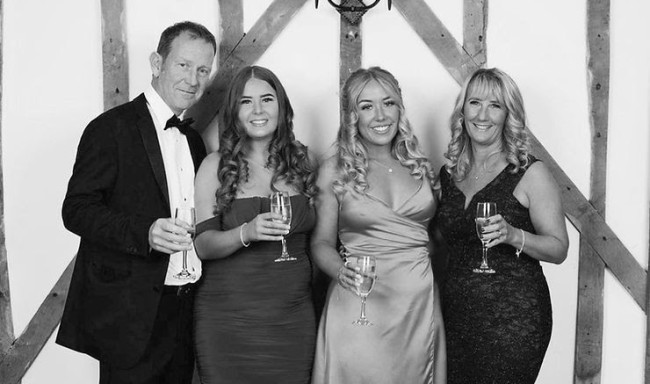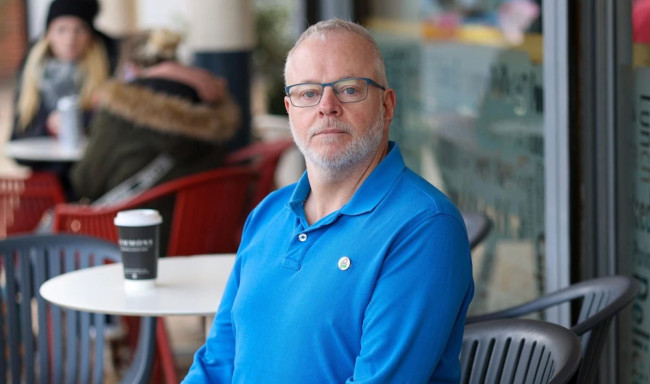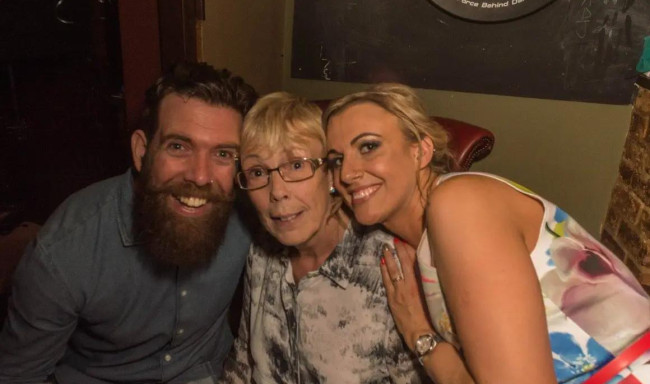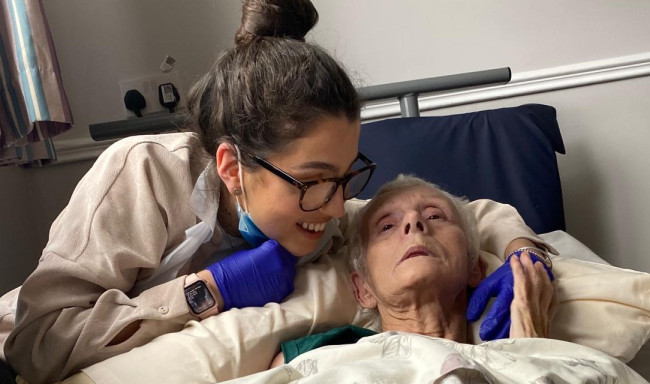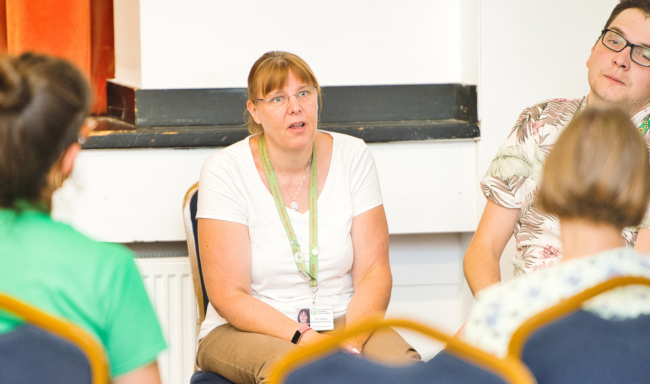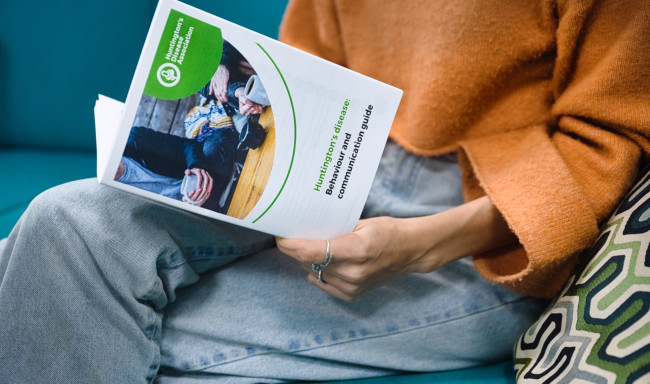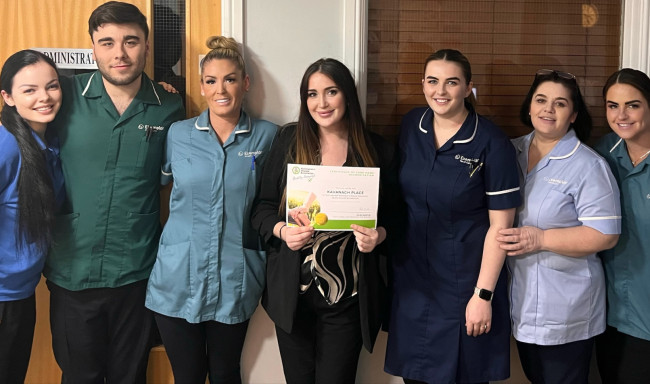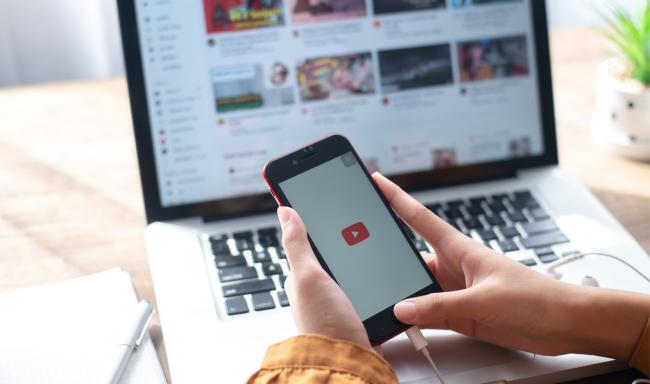We spoke to Claire about what it's like caring for a spouse who is affected by Huntington's disease. She opens up about how life changed as she went from a wife to a carer for her husband, Mr D and how she has navigated the journey using routines and emotional and practical support solutions.
Please tell us a little bit about yourself and Mr D and what life was like before he tested positive for Huntington’s?
"Mr D and I met in April 2006 and married in May 2008. We enjoyed all the normal things like going out to dinner, the cinema, having friends over, holidays abroad to relax. Mr D was an HGV Class 1 driver at the time and absolutely loved his job. I worked in sales and recruitment so sometimes we were like ships that passed in the night which is why relaxing was really important to us. We were not blessed with children but this didn’t stop us from having plans for the future."
Were you aware of Huntington’s in Mr D’s family before symptoms arose?
"In a nutshell, no! Mr D and I had IVF treatment in 2011 and obviously asked both families for any medical history we needed to know about before embarking on our journey. Nothing was shared with us until 2015 when Mr D started to have a few bumps and scrapes in his lorry whilst driving. I also noticed that he was moving involuntarily, his memory and obsessive behaviour started to take its toll and I made the decision in October 2015 to go and see his GP as I was so worried about him. I’d Googled everything I could think of but Huntington’s was not on that list as it had never been mentioned. When I sat down with his family, it was mentioned that Mr D’s grandfather, great grandfather and a majority of offspring had had the disease. Mr D received his diagnosis on 1 December 2015."
What is daily life like for you now as a carer?
"Even on the most stressful of days, I try to remain positive but that does drain you as a person. You go from being a wife with plans to a carer overnight and your life is affected massively. Mr D can no longer cook, make a hot drink, do his buttons, belt or zip-up, tie shoelaces, get dressed, shave, and on the worst days, I do all his personal care. The constant repetitive questions can make you want to explode but you have to try to remember that anyone living with this condition can’t help it. I try to provide as many trigger solutions as possible, endless lists, notes, reassurance but also working full time means I get zero time for myself. Working for an amazing company like I do means that I have more flexibility than ever before and with a work ethic from our Managing Director of Family First, which gives me the strength to allow myself to have a wobble every now and again."
How has it changed your life and also your outlook on life?
"Seeing someone you love deteriorate before your eyes is possibly the most heartbreaking thing in the world. My life is not my life, it is now to provide financial, emotional and practical support solutions for Mr D. I have to be one step ahead of his thoughts, feelings and anxiety. Sometimes I feel I sleep with one eye open for fear of missing something. My outlook is to get through one day at a time and to remember above all else that he can’t help what is happening to him. I'm not trained to deal with this disease but I know that I am doing everything I possibly can right now."
What is the one thing you find most useful and supportive as a carer of someone affected by Huntington’s disease?
"I do blog quite a bit and now have connections around the globe with people going through the same thing as me. I offer support and I am an ear for them depending upon where they are in their own journey. When Mr D was initially diagnosed I was utterly overwhelmed by all of the information provided and it became too much. We are incredibly lucky to have a wonderful team of specialist practitioners locally so they are all on speed dial and check in with me regularly. The most useful thing I have found is to keep talking about your own journey in order to share your experience so that people hopefully understand why you can’t be happy and clappy all the time."
Do you have any advice for others who are having similar experiences to yourself?
"Now that I am five and a half years into this disease, I would advise anyone to start talking about it. I bottled it up for at least two years before I came to terms with what was happening and ultimately where we will end up. Nobody is mentally prepared for that unless you are from a medical background which I’m not.
Take time for yourself as early as possible so that the routine is set out from the beginning, remember that you are entitled to live a happy and fulfilled life. One thing is for sure, we all only get one life. I am always happy to hear from anyone who needs support and I want to do as much as I can to raise awareness of this expediential disease.
I am incredibly lucky to be able to share our journey and hope that by being brutally honest, it may help others. I have spoken publicly on numerous occasions about Huntington’s disease and have no intention of stopping any time soon. Please feel free to reach out on Instagram: @clairedarby73x @huntingtonsandmrd."


Thank you so much to Clair for sharing her story with us. If you have a story to share, please get in touch with us via email.
If you are affected by Huntington’s disease and are in need of support or advice, please contact us on 0151 331 5444 or email info@hda.org.uk. Our dedicated phone line is open 9 am – 5 pm, Monday – Friday with Specialist Advisers waiting at the other end to offer you support.
If you are a carer for a loved one, you can find information on how to get support here.

